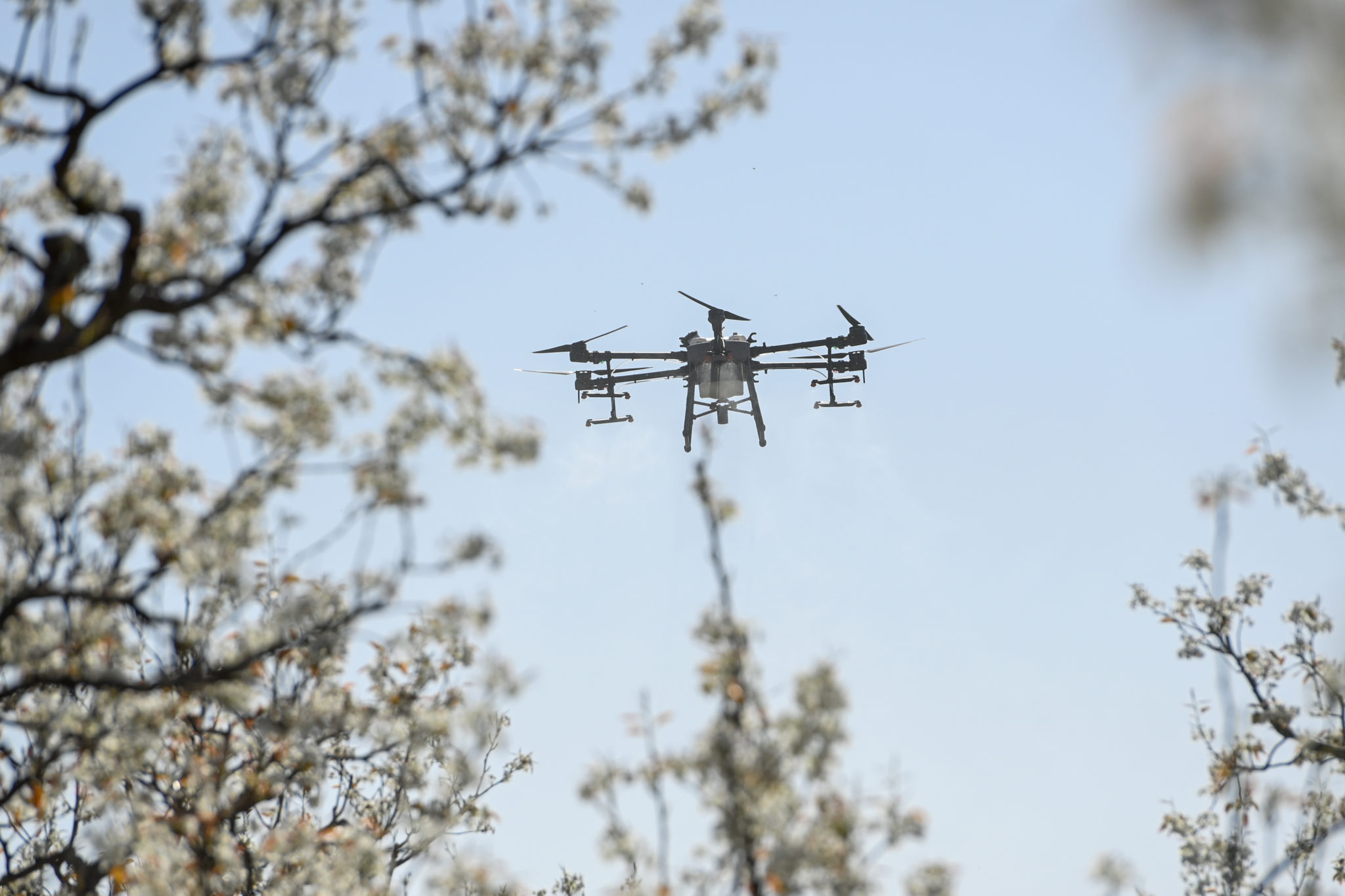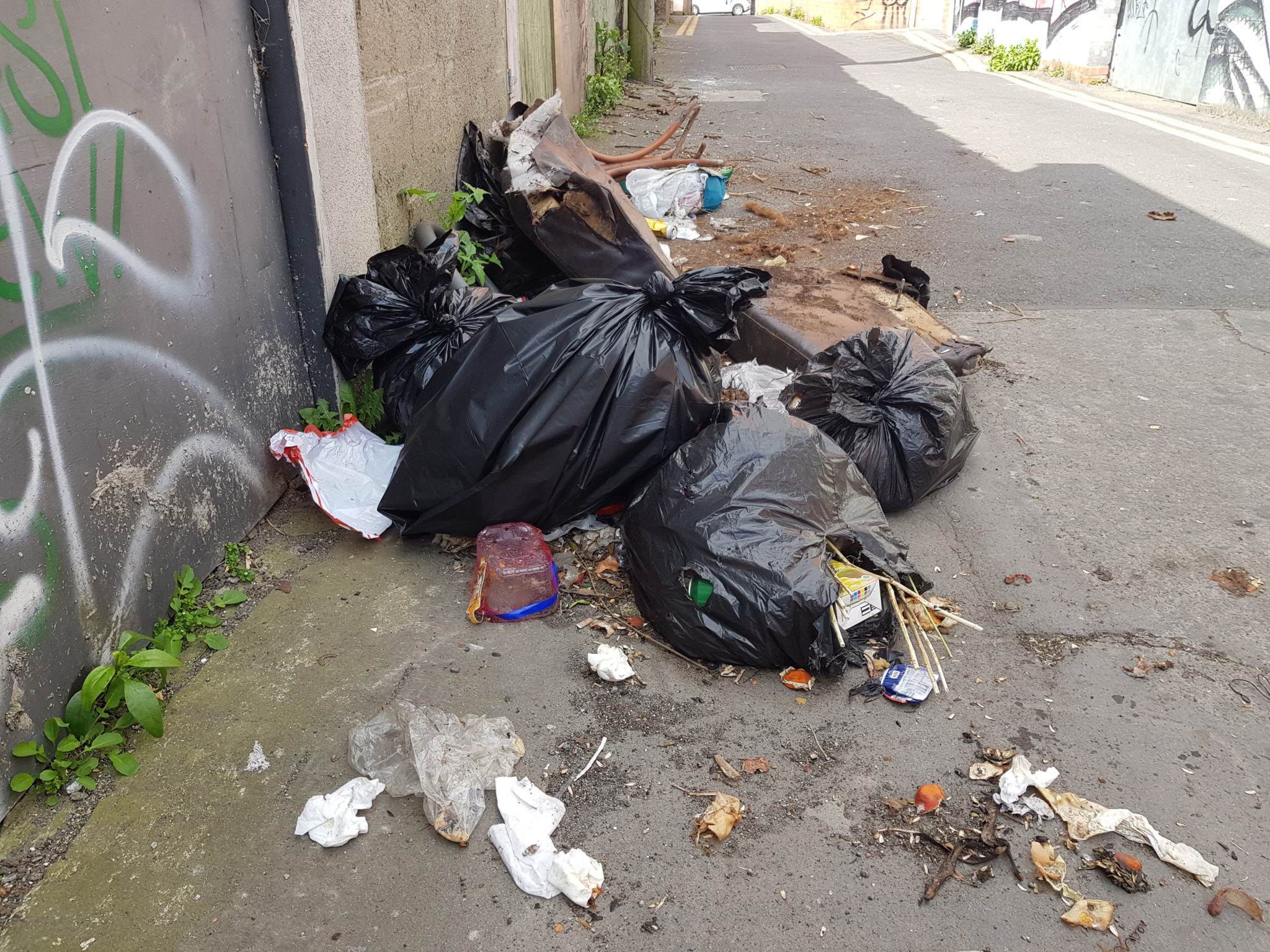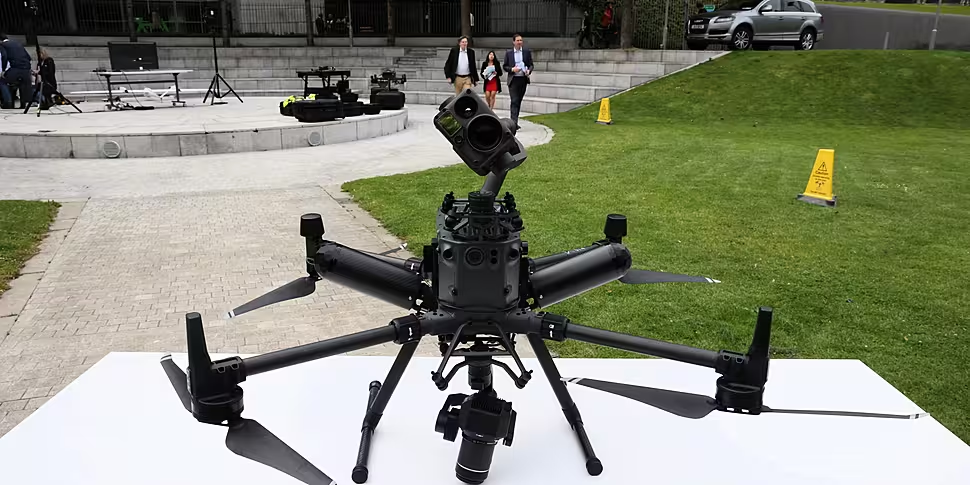Body cams, CCTV and drones could soon be used to tackle illegal dumping in Ireland.
A new code of practice is being drawn up that would allow local authorities to use a range of surveillance technologies to clamp down on dumping.
The code is being drawn up by the Local Government Management Agency (LGMA), with input from the Data Protection Commission (DPC) and a number of Government departments.
Environment Minister Eamon Ryan will be asked to assess and approve the new code as soon as it is ready – with officials hoping the new tech can be rolled out before the end of the year.
Senator Malcolm Byrne has been campaigning for councils to be permitted to use CCTV to tackle dumping and on The Pat Kenny Show, he said the new tech is just one part of the solution.
“Obviously, [the problem] requires a lot more in terms of education and so on but we do have a consistent problem with a small number of individuals who engage in illegal jumping,” he said.
“There is a huge financial cost; there is a great environmental cost.”
He said local authorities will need extra funding to roll out the technology as soon as it is approved.
“There will need to be training of local authority staff as to how to use it effectively and with the necessary safeguards in place and ultimately, what we have got to start to do is to catch those people who are doing enormous damage to urban and rural areas … and we need them to be prosecuted,” he said.
 A drone pollinates pear trees at a pear orchard in China. Picture by: Ding Lei/Xinhua News Agency/PA Images
A drone pollinates pear trees at a pear orchard in China. Picture by: Ding Lei/Xinhua News Agency/PA ImagesAlso on the show, Irish Council for Civil Liberties Executive Director Liam Herrick said it is “really welcome” to see Ireland “moving towards having a proper legal framework for this”.
“Over the last number of years, several local authorities have gone ahead and put in place CCTV systems, either for litter or crime prevention without a proper legal basis,” he said.
“They have put in over-excessive levels of surveillance, they have done things that are unlawful, they have sometimes been fined.
“I think for the last couple of years, it has been crying out for a proper legal basis and clarity on this.”
 Rubbish dumped on Dalymount Lane in Phibsborough, Dublin, 11-04-2022. Image: RollingNews
Rubbish dumped on Dalymount Lane in Phibsborough, Dublin, 11-04-2022. Image: RollingNewsHe said CCTV can be “very useful” for clamping down on these types of crime – but only where it is used appropriately.
“Sometimes it is proportionate and sometimes it is not but if we are going to do it, we need to make sure there is a lawful basis and that it is necessary,” he said.
“We need proper safeguards so there is not inappropriate accessing of filming – for example, people aren’t harassed and that there are not invasions of people’s privacy.”
He said it is harder to argue the need for the use of drones – except in very remote locations where there is no other way to monitor the area.
You can listen back here:









